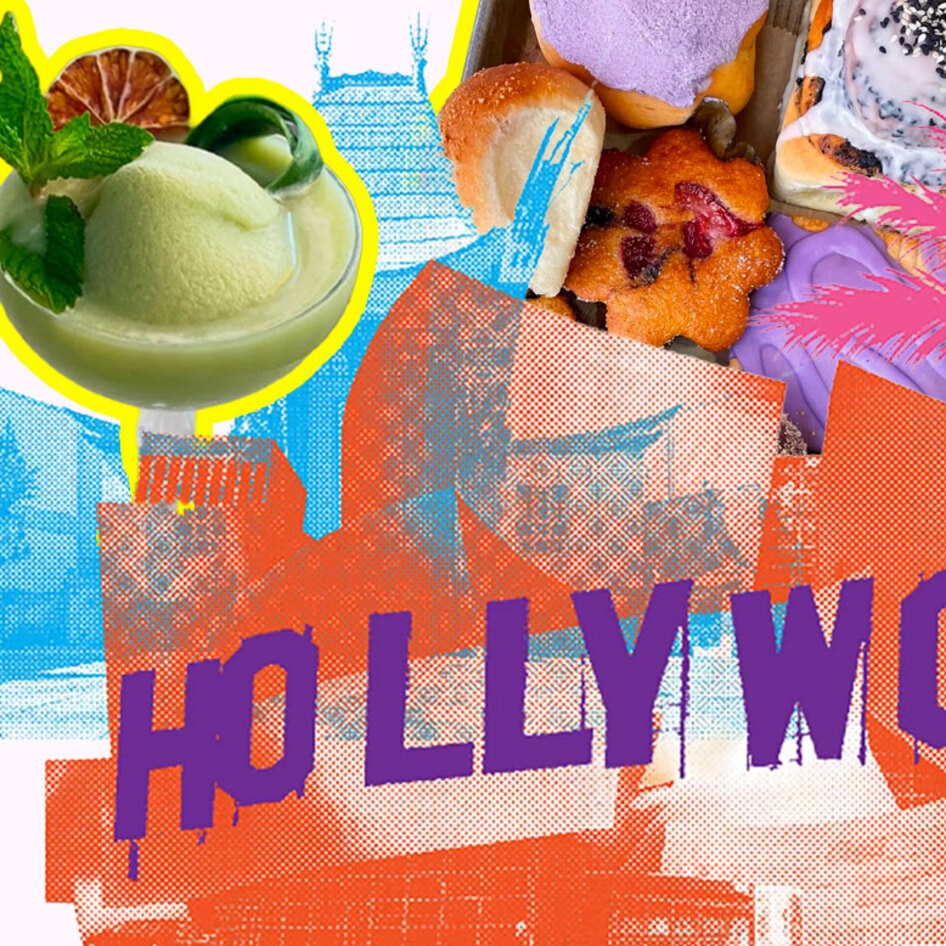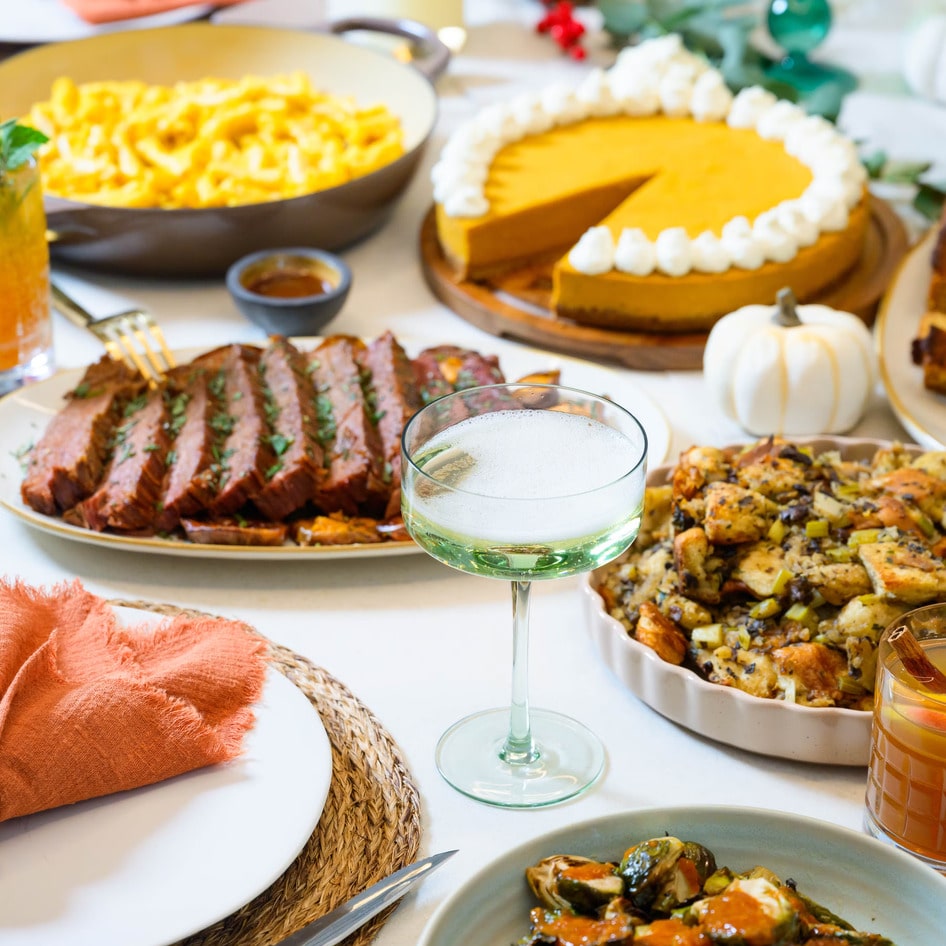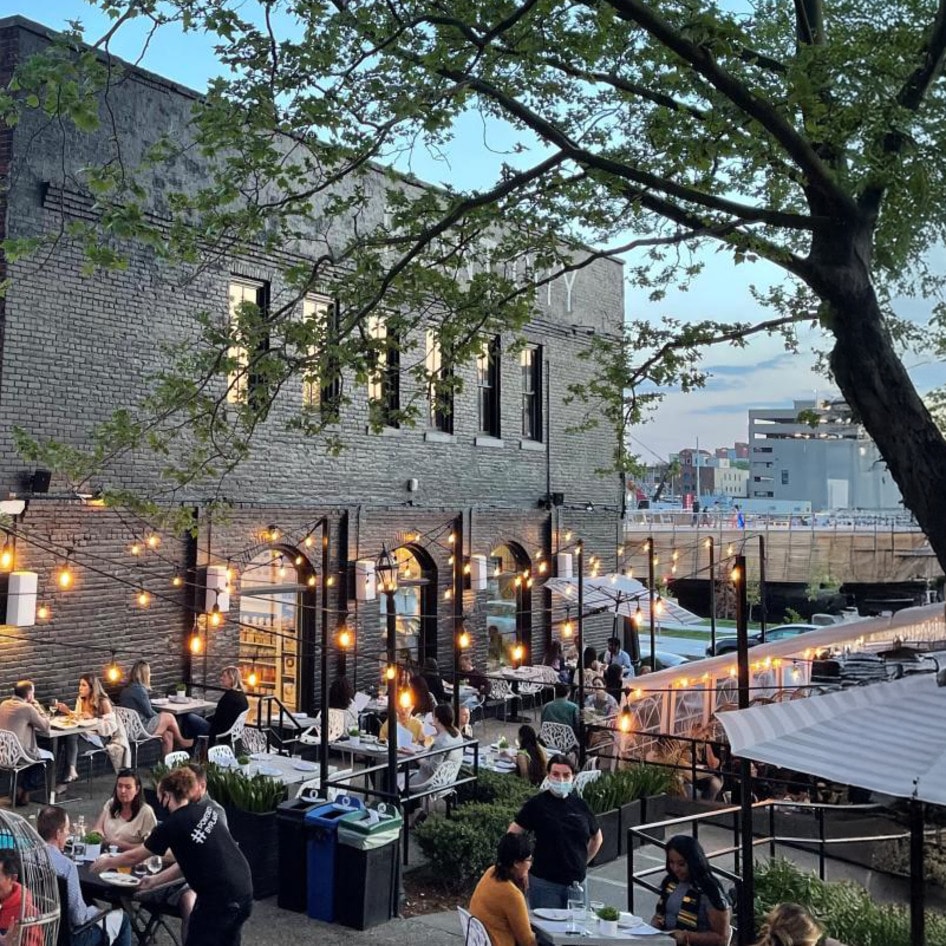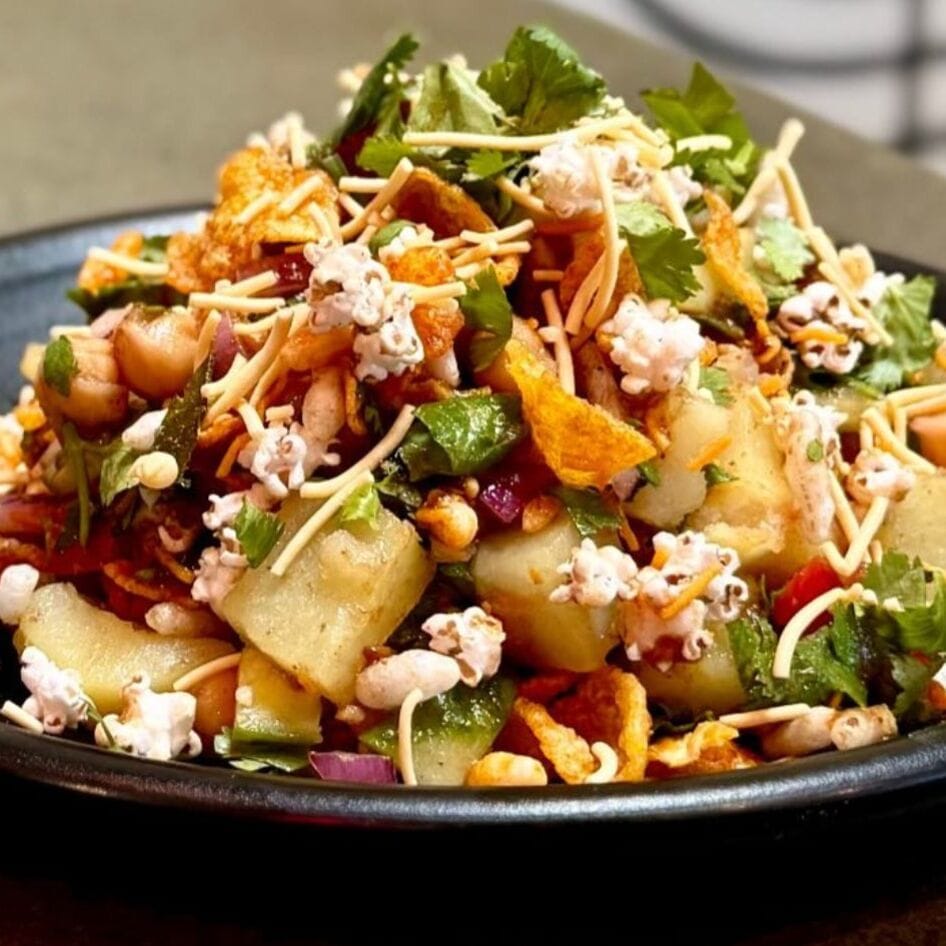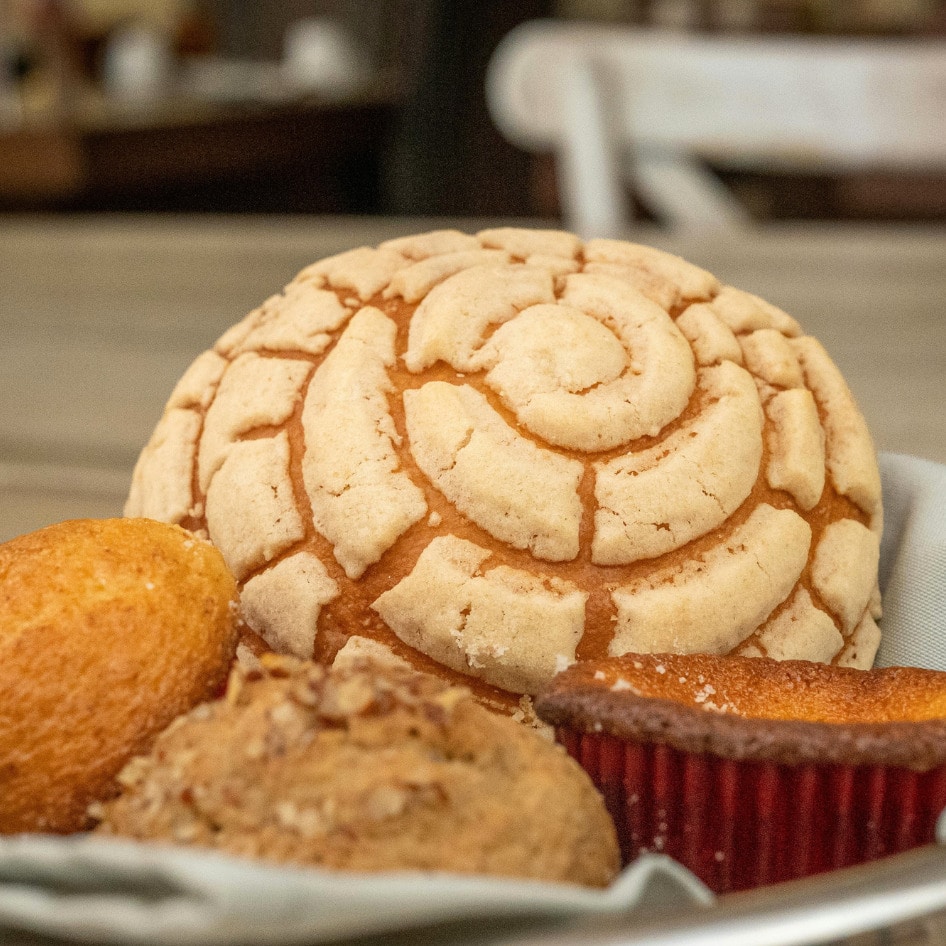The (Vegan) King of Salt Lake City
VegNews has just named Salt Lake City as America’s Next Great Vegan City, and this chef/entrepreneur may have started it all. we sit down with Ian Brandt.
March 6, 2012
In the March+April edition of VegNews Magazine (on newsstands now), our team published our first-ever vegan city showdown. After much deliberation over which urban center has the best vegan bakeries, street carts, bars, and cafés, we proclaimed Salt Lake City as the Next Great Vegan City—and Ian Brandt is one reason why. we sit down with Brandt at one of his many meat-free enterprises, and discusses how he is helping to change the perception of vegan food in the city best known for its snow-capped mountaintops and religious persuasion. Could Salt Lake City be the next Portland? We’re betting on it.
VegNews: How has the vegan scene in Salt Lake City changed in the last 10 years?
Ian Brandt: The access to vegan food has grown considerably. Most restaurants have vegan options on their menu or the chefs are able to accommodate vegans. In 1999, when we first started, there were three vegan and four vegan-friendly restaurants. Today, there is a vegan grocery store, two vegan bakeries, two vegan food carts, four vegan restaurants, and 50 vegan friendly restaurants with specific vegan options on their menus.
VN: Why did you go vegan?
IB: I began eating more compassionately when I was 14. I stopped eating veal after finding out how the cows were treated and after seeing the veal boxes in the farm country of Pennsylvania and New York. I then cut red meat out of my diet when I was 21. At 23, I began to eat vegan, as my ex-wife was pregnant and we were questioning whether she should be eating dairy while breastfeeding. It also seemed like animal abuse to take the calf away from its mother and take her milk. I have been eating vegan with a focus on whole and raw foods ever since.
VN: Tell us how you decided to open up your first vegan restaurant.
IB: I came up with concept of Sage’s Café through a convergence of thoughts and feelings. I studied business, hospitality, and economics at the University of Utah for five years and determined that I wanted to find a career that was benefiting the earth and the people of it. When my ex-wife became pregnant, we started going to Earthsave potlucks, reading books like Diet for a New America, and getting inspired by the culinary feats of Eric Tucker of Millennium Restaurant. So the Greens Vegetarian food cart was born in 1998, and we served vegan food at the farmers’ market, summer concert series, and downtown to passersby. One day, I found a quaint restaurant space (circa 1880s) and had a great feeling about it; I felt that serving food from a fixed location would be easier and more customers would dine with us if we operated a restaurant. I also saw a void in the market for organic, locally grown, and environmentally sustainable food. I wanted to show people that vegan cuisine could be rich in flavor and fulfilling in texture and presentation, so we opened up Sage’s Café in 1999 and are still at it with seasonal, local, innovative cuisine with a great wine list.
VN: Thinking in terms of organic and local in Salt Lake City 13 years ago exemplifies what a true pioneer you were, but the big question is always whether or not it can be accessible to the masses. What are your thoughts on this?
IB: We, as a population, can easily sustain ourselves on local, organic vegan foods. In Utah, for example, we could easily grow and sustain ourselves on potatoes, beans, grains, vegetables, fruit, sunflower oil, and hemp oil—so a vegan diet is very doable without any outside inputs. I would love, however, to have the local food sources available to those who live in California—imagine eating fresh figs six months out of the year!
VN: You mention Eric Tucker as being a big influence on your work. Are there any other vegan chefs you admire around the country?
IB: I’ve had the opportunity to work with some of the best vegan chefs during a few conferences. Working next to Eric, Chad Sarno, Ken Bergeron, Kevin Dunn, Fran Costigan, and Tal Ronnen was an inspiring experience. And I’ve had some great meals at Sublime, Millennium, and Horizons.
VegNews: After Sage’s Café, tell us about your next vegan ventures.
IB: The concept for Vertical Diner came after a culmination of my experience working at a diner in Philadelphia, the need in Salt Lake City for more affordable vegetarian cuisine, and noticing the high demand for vegan breakfast food. Every day, I drove by a unique, old diner building I had ever seen and thought to myself, if that place was ever for lease, I’d start a vegan diner. One day, while driving by, I noticed for-lease signs, and three weeks later, it was mine. We opened Vertical Diner in February 2007 where we serve vegan comfort food in a friendly, cozy setting.
VN: And I know from visiting you last year, you didn’t stop there. What happened next?
IB: A month after leasing the Vertical Diner location, I was thinking about how I could centralize the food preparation for both Sage’s and Vertical. I found a warehouse that was formally a microbrewery, which became the home for Cali’s Natural Foods. We began production in 2008 and opened to the public in November 2009 selling produce, spreads, bulk foods, homemade frozen foods, and body care products. We also supply organic and local food to some of Salt Lake’s City’s top restaurants and bakeries.
And just a few months ago in November, I opened Cafe SuperNatural, a gluten-free restaurant with a hip modern design located in the Prana Yoga studio space. We serves superfoods, raw foods, fresh juices, chakra elixirs, and fruit smoothies while maintaining the same mission as our other businesses.
VN: What’s the secret to your success?
IB: How is success defined? I have succeeded in many of my goals in life. Success, for one person, could mean the end of all human and animal suffering. Every day I wake up with plans to help make positive change. The secret to success, I believe, is to never give up.
VN: What advice would you give to an aspiring vegan restaurateur?
IB: If you are going to open up a vegan restaurant, you should have lots of business experience and education behind you. You will need to have performed every role in food service including management, as one wrong choice could bump you out of business. You also must be realistic about the demand for vegan cuisine in your neighborhood or city.
VN: Sage’s and Cali’s are named after your two children. How does your family eat at home?
IB: I make my kids’ lunch for school every day and make every meal from scratch. My kids love all food except for eggplant, mushrooms, and olives. I like to make risotto, tacos, pasta, polenta, roasted potatoes, rice, and beans. We try to eat from our garden whenever possible and grow carrots, beets, kale, Swiss chard, collards, Chinese bok choy, arugula, spinach, beet greens, and wild greens (I love eating sautéed greens with brown rice or some crispy Italian bread). I also make my own wine from the grapes on my property, which is amazing. The wine is made with wild fermentation and no added sulfites.
VN: We just named Salt Lake City as the “Next Great Vegan City” in the current issue of VegNews. Why is SLC deserving?
IB: Salt Lake City is a small city of just 180,000 people, so we have great support for vegan food relative to its population. With the average age 27, it is a city of young people ready to make change. SLC hosted the 2002 Winter Olympics, is home to the Sundance Institute, and has some of the most dynamic landscapes, parks, open spaces, and monuments anywhere. And there is a rich history of sprouts, granola, and fine vegan cuisine in Salt Lake City: We hear about old secret hip cafés like The Morning Star that served veg cuisine in the 70s. Mark Machlis created the original recipes for White Wave and Tofurky out of the Park Ivy Café in downtown SLC. Our own former mayor, who eats mostly vegetarian and is a regular at Sage’s, is even running for president. Vote Rocky Anderson!
VN: What’s next for you, Ian?
IB: This summer, we’re creating cooperative farm stands at a few locations in the city. And Cali’s will be selling its packaged food in grocery stores throughout the state. I also think that I will be opening an artisan bakery pizza place in the next few years. I have been practicing making pizza and bread that is fully artisan and yeast-free, and am excited to share it with our local community.
Planning a visit to Salt Lake City? Check out Sage’s Cafe, Vertical Diner, Cali’s Natural Foods, and Cafe Supernatural. Follow VegNews’ co-founder Colleen Holland on Facebook here.
JUMP TO ... Latest News | Recipes | Guides | Health | Subscribe

